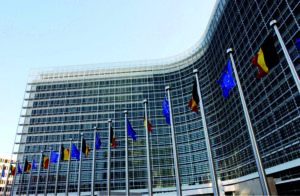EU’s refugee resettlement scheme lagging
The European Union’s plan to redistribute migrants from Italy and Greece has hit a road block as reports show that as few as ten per cent of the target number have been accepted by other countries.
And the problems exist at a policy level as well as in practice with three countries – Hungary, Poland and Austria – refusing to act on their technically binding commitments to take part in the scheme.
So far, none of the three have taken in a single asylum seeker under the relocation scheme agreed to at the height of the refugee crisis in 2015.
The latest report from the European Commission shows that 18,418 asylum seekers have been relocated to date – far short of the 160,000 places EU states pledged to make available by September this year.
 The pace of relocations has picked up in recent months, but it remains below what is needed to meet the September deadline.
The pace of relocations has picked up in recent months, but it remains below what is needed to meet the September deadline.
The report shows most other EU member states are relocating regularly.
Poland and Hungary have fiercely opposed the policy and last year, the Hungarian government held a referendum on the issue and received overwhelming support for the government’s policy on not accepting the redistribution of migrants.
The EU has also been working with countries in the region like Turkey, Jordan, and Lebanon to take in migrants.
The United Nations has urged the EU to move in the opposite direction when it comes to Hungary and said the bloc should not be sending migrants because they claim conditions for migrants are deteriorating and say there have been reports of abuse.
Filippo Grandi, United Nations High Commissioner for Refugees urged states to suspend any Dublin transfer of asylum-seekers to Hungary until the government there brings their practices and policies in line with European and international law.
NGOs and refugee advocacy groups have made claims that police and border control agents have systematically abused migrants along the Hungarian-Serbian border.
The Hungarian government has denied the abuse.
The European Commission has also singled out the Czech Republic for it inactivity on relocation.
The slow acceptance rate across the EU has left tens of thousands of people living in unsanitary and overcrowded camps in Greece and Italy.
This is the first time the commission has singled out individual countries and threatened them with a so-called infringement procedure.
The European Parliament is due to formally adopt a resolution that accuses member states of dragging their feet on relocation.
The relocation plan was agreed in 2015 amid record-high arrivals of refugees and migrants from the Middle East and Africa.
The EU took in 1.6 million people in 2014-2016. Greece has seen numbers drop since the EU agreed a deal with Turkey that cut off this route, but Italy is now under bigger pressure with arrivals from the shores of Libya
The EU’s border agency Frontex said this month that in April nearly 13,000 people disembarked in Italy, up a fifth from March.
The commission report calls on states to increase their capacity to process application requests, avoid overly restrictive preferences and delays and give priority to applications from vulnerable applicants, in particular unaccompanied minors.
It says the rate of relocation from Italy has been slower – fewer than 6,000 of the 18,418 relocations have been from Italy to another state – compared to Greece, partly due to disputes between Italian authorities and their counterparts elsewhere over security checks.
Laurie Nowell
AMES Australia Senior Journalist












